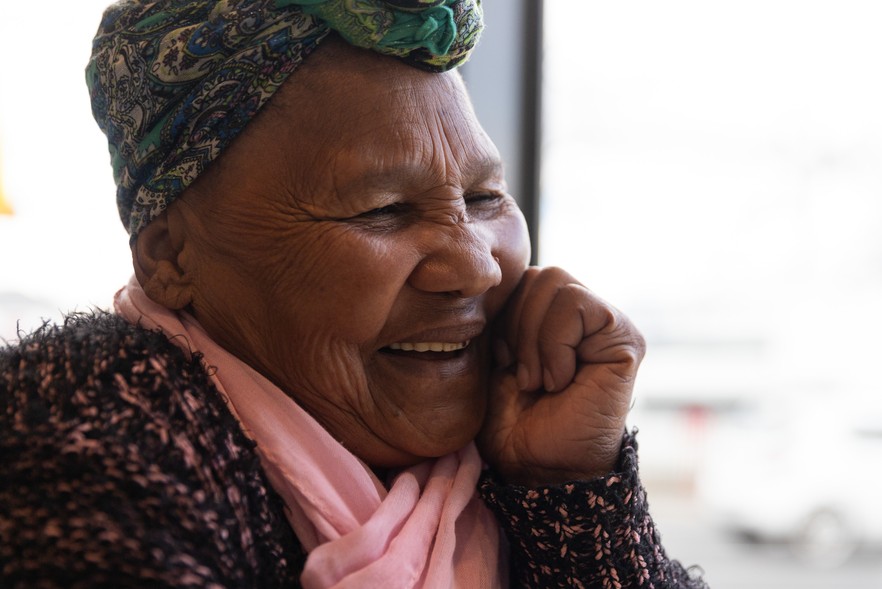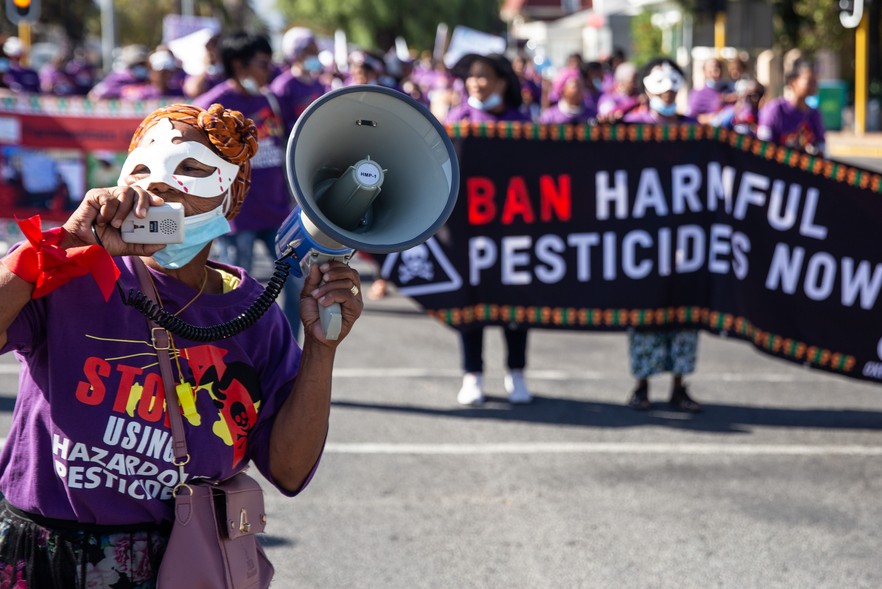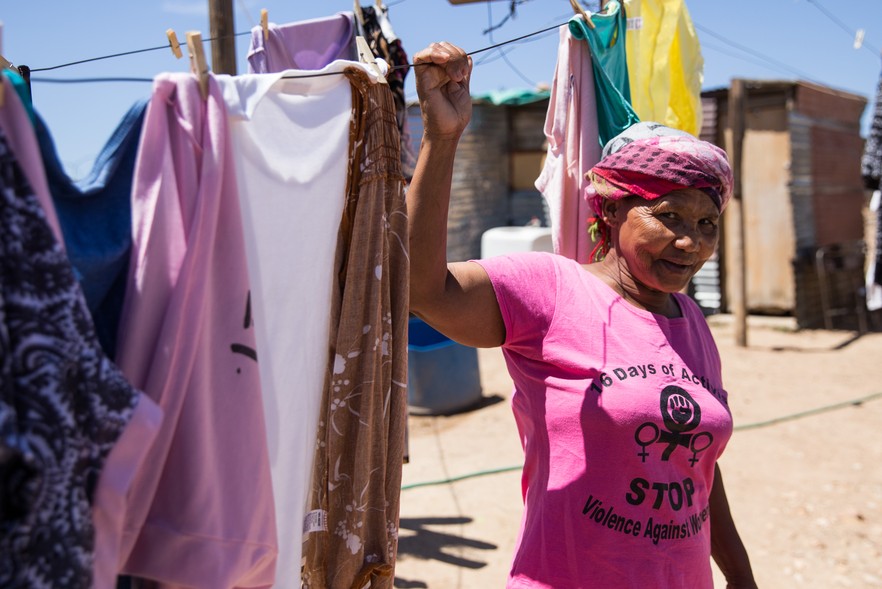Aunty Bettie: a lifetime of fighting for women farm workers
“If you know your rights you can stand up for yourself”
“My parents were scared because they couldn’t speak out,” says De Doorns activist Bettie Fortuin. “But today we can.” Photo: Ashraf Hendricks
“I will always fight for my people,” says 60-year-old De Doorns resident Bettie Fortuin, also known as Aunty Bettie, who has worked on farms much of her life and has been an activist for women farm workers since about 2007.
Things have changed a lot since she was growing up, says Fortuin. “My parents were scared because they couldn’t speak out. But today we can. We have marches, we have pickets, where you can say this is wrong. That’s the big thing we have today. It’s our weapon.”
She says she didn’t have much knowledge of her rights as a farm worker until she joined the Women on Farms Project in about 2007. Since then, she has helped many farm women fight for their rights, especially with respect to evictions and dismissals.
“It’s difficult when you don’t know your rights. Your rights are everything to you. If you know your rights, you can stand up for yourself,” says Fortuin.
Fortuin said that the advice she always gives people who come to her for help is that they shouldn’t be scared. “I tell them no one can do anything to you,” says Fortuin, because the law applies to everybody.
Fortuin was born in Murraysburg and moved to De Doorns as a young child. She was one of 16 children. Later she lived in Namibia for about 11 years, where she met her husband. They moved back to South Africa in 1991. She worked on farms in Ceres before moving back to De Doorns.
Bettie Fortuin on a march against pesticides in 2022. Archive photo: Ashraf Hendricks
Fortuin was one of the organisers of the 2012 farm worker uprisings which started in De Doorns and soon spread to Worcester and other Western Cape farming towns. Thousands of farm workers protested, demanding a wage of at least R150 a day.
But despite the end of apartheid and the protests more than 20 years later, things have not significantly improved for women living on farms and in rural towns, says Fortuin. Evictions from farms are frequent, informal settlements in farming towns are overcrowded, many women are still employed as seasonal workers, working only a couple of months a year, and many don’t have tenure.
Now, her biggest “passion” is to educate farm workers on their rights. She says she will continue fighting “until the day we get our piece of land”.
“We have been fighting for years for a hectare of land,” says Fortuin, referring to the One Woman One Hectare campaign for women on farms to get a hectare of land to grow vegetables and keep animals.
She says with a hectare, people can at least leave something for their children when they die. “Our children have nothing. When we die, we can leave nothing for your children.”
And with the cost of living rising sharply, farm workers can barely survive off of the minimum wage of R27.58 an hour. “It’s not enough … From what must the farm workers live?”
Bettie Fortuin has been fighting for the rights of women on farms since 2007. Archive photo: Ashraf Hendricks
Support independent journalism
Donate using Payfast

Don't miss out on the latest news
We respect your privacy, and promise we won't spam you.
Next: Quieter seas are good news for African penguins
Previous: Water at last after protest blocks N12
© 2024 GroundUp. This article is licensed under a Creative Commons Attribution-NoDerivatives 4.0 International License.
You may republish this article, so long as you credit the authors and GroundUp, and do not change the text. Please include a link back to the original article.
We put an invisible pixel in the article so that we can count traffic to republishers. All analytics tools are solely on our servers. We do not give our logs to any third party. Logs are deleted after two weeks. We do not use any IP address identifying information except to count regional traffic. We are solely interested in counting hits, not tracking users. If you republish, please do not delete the invisible pixel.



